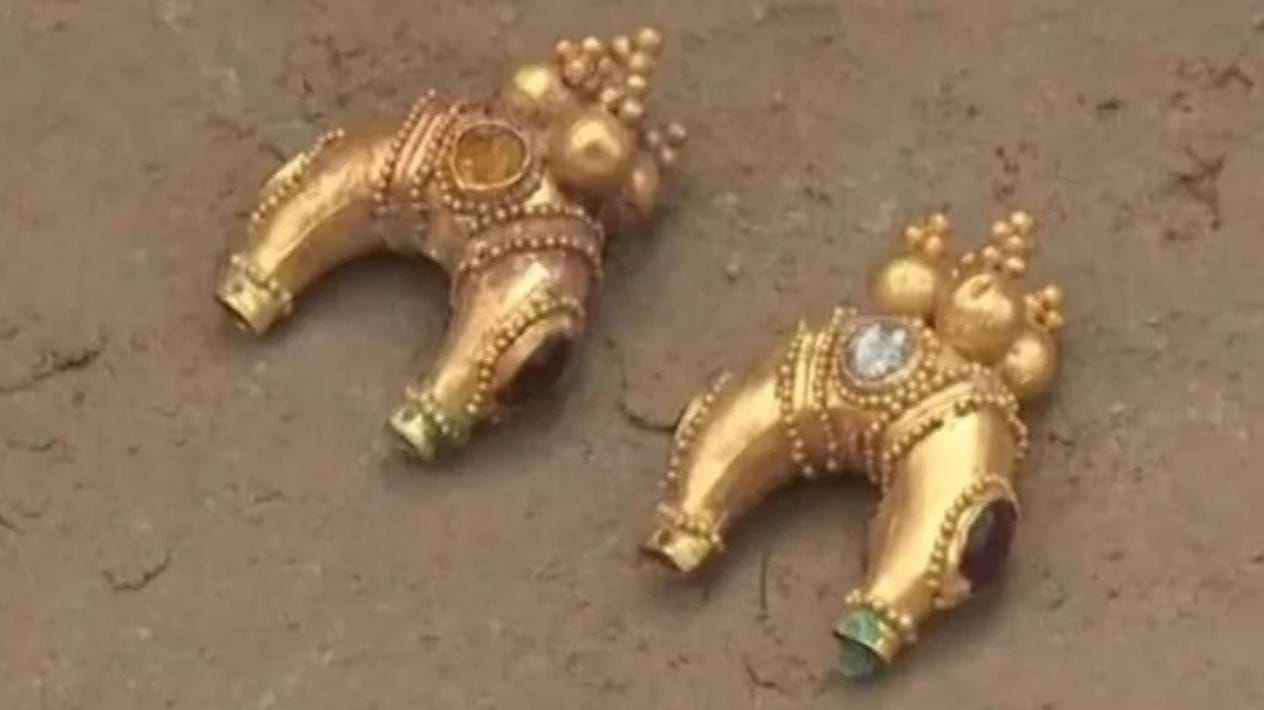Hey everyone,
Short week in the news.
Also, if you've been waiting to buy my book, it is currently on sale at Amazon!
This week, in history acting unruly…
The question on many Americans’ minds: Can Trump still run for president if he’s been convicted of a felony (or 34 of them)? The answer is yes—the Constitutions has more restrictions for voters than candidates. Here’s an explanation of how and why.
Also, the Supreme Court is about to hit its high season. Several key decisions will be coming in the next few weeks. Brace yourselves.
In Rome, these six “talking statues” have been giving a safe avenue for dissent for centuries.
You’ve heard of Fabergé eggs, but what do you know about the Fabergé animals that were favorites of the Romanovs?
This legendary editor mentored two budding authors, changing the face of American home cooking.
Over the years, Dutch philosopher Spinoza has been interpreted and reinterpreted to fit various ideologies. (This also contains a good introduction to Spinoza’s writings and ideas, if you’ve unfamiliar.)
In the Great Basement, within the Tlatelolco archaeological zone in present-day Mexico City, a special votive offering of rare ceremonial knives was just found.
How Paris became a safe haven for American artists in the early 20th century.
In folks who were looking for one thing but found another…
Øyvind Tveitane Lovra, a farmer in Norway, thought he was picking up trash in a field. What he found was a rare Viking sword.
In a pet cemetery in Egypt, where people buried cats, dogs, monkeys, and more, archaeologists recently discovered a set of letters written by ancient Roman commanders.
A wine maker in Austria found 40,000-year-old mammoth bones while renovating the wine cellar.
In the Czech Republic, a woman was going for a walk when she found a hoard of over 2,000 Medieval silver coins.
Dr. Lulu Hunt Peters got the US hooked on counting calories. Has it helped us literally at all?
Invasion and colonialization are often posed as single events, but both are more of a process and structure.
In the Tolebaitobe cemetery in Kazahkstan, archaeologists just unearthed gold jewelry, and bronze mirror in an untouched burial mound. They think these goods were buried during the Kangju state, a little-known political entity that governed the region in fourth century BCE.
The history of treating diabetes—and how insulin has long been a site for price-gouging.
At least eleven canoes have been found at the bottom of Lake Mendota in Wisconsin. It looks like they were sunk intentionally to protect them during the winter, suggesting that a previously unknown civilization once thrived in the area.
In 1924, Indigenous people living in the US were given a path to US citizenship. But the law President Coolidge signed fell short in a number of ways.
The US’s first board game, “Travelers’ Tour Through the United States,” was released in 1822. It tells us a lot about the country’s early aspirations.
In Washington, D.C., the Folger Shakespeare Library is about to reopen after a renovation. Here’s how the library came to be.
Recent archaeological excavations at the ancient Nikopolis Agora in northern Greece have uncovered the Temple of the Emperors.
4,000 years ago in Anatolia, 12 people came together with 15 kilos of gold to found the first (known) company in the region.
I feel like we get the “crime of the century” every few years. But in May 1924, two teens killed another (younger) teen for the thrill of it. Ironically, victim Bobby Franks had just given an impassioned speech against the death penalty, saying “only God is permitted to take human life.” Their crime—and their reasons for it—still fascinate and reflect the anxieties of the 1920s.
How Ida B. Well’s anti-lynching campaign was inspired by the murder of a Black grocer.
The myth of Bloody Mary is strong in the cultural consciousness, but was Queen Mary I really so violent?








